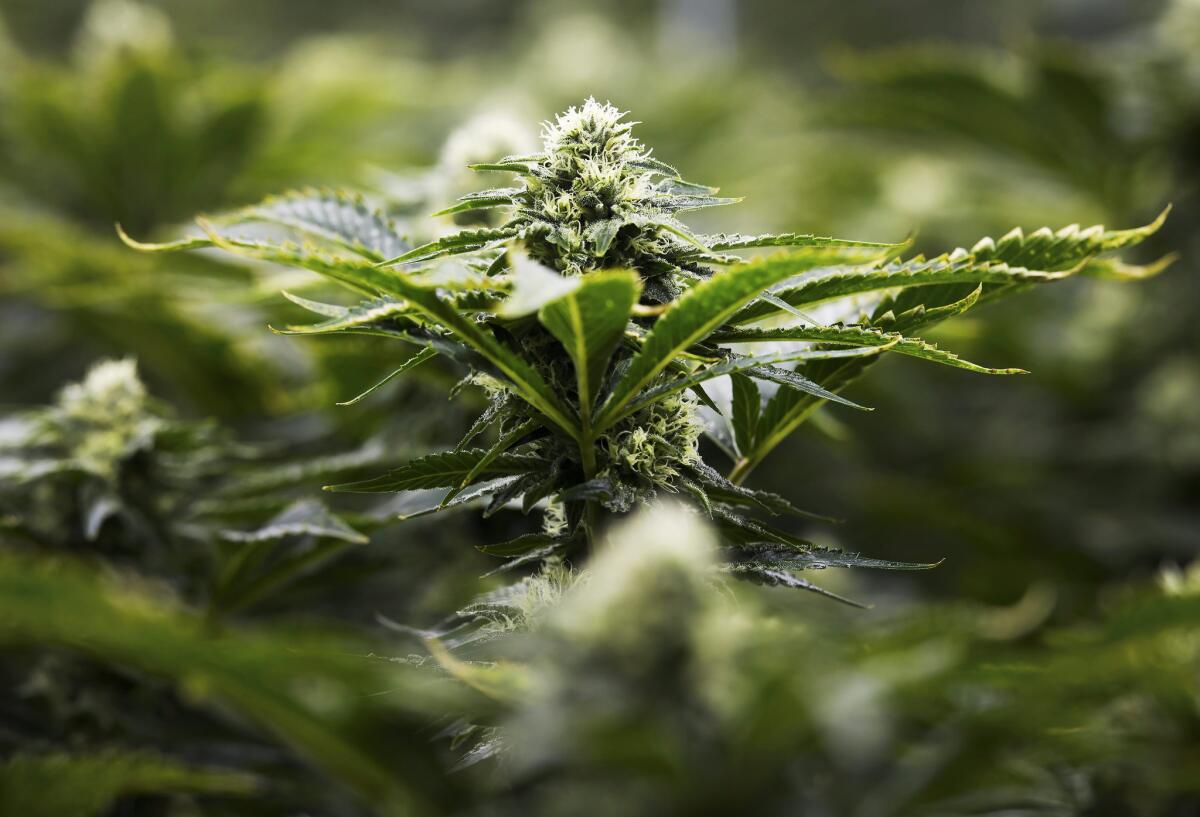Burbank votes to ban commercial pot operations

While not previously banned, medical marijuana-related land uses were not authorized in Burbank’s zoning codes, but a recently approved state law aimed at regulating medical pot requires cities to make such restrictions explicit if they want to keep them. Cities have until March 1 to do so.
In an effort to retain a measure of local control over medical-pot businesses, Burbank City Council members voted unanimously on Tuesday to introduce an ordinance that will ban commercial cultivation, delivery and dispensing of the drug. However, council members decided against a stronger measure that would have banned cultivation completely.
Citing concerns about access to medical pot for those who need it, council members agreed to a provision that will allow card-holding patients or their primary caregivers to own up to six mature plants and 12 immature plants. They also agreed to allow primary caregivers to deliver pot obtained outside city limits to up to five of their patients in Burbank.
While not previously banned, medical marijuana-related land uses were not authorized in Burbank’s zoning codes, but a recently approved state law aimed at regulating medical pot requires cities to make such restrictions explicit if they want to keep them. Cities have until March 1 to do so.
A proposed ordinance to that effect, which had been proposed by city staff with a unanimous recommendation from the Planning Board, would have banned all pot-related business activities, as well as all cultivation, even for personal use by qualified patients.
The draft measure cited several findings supporting the ban on cultivation, including existing federal laws against pot, the plant’s strong odor and an increased fire risk due to high-wattage indoor grow lights, as well as “adverse effects to the structural integrity of buildings” associated with indoor grows.
Councilman David Gordon asked if the city bans such lights — it doesn’t — and noted that the film industry uses very powerful lights.
Councilman Will Rogers said the fire risk suggestion seemed like “‘Reefer Madness’ thinking,” referring to a 1930s film about the dangers of pot. He also argued that if such fire risks exist, banning all cultivation could make it worse by forcing the activity into the shadows where it would go largely unchecked, instead of being licensed and regulated.
Assistant City Atty. Lisa Kurihara said the proposed language about increased risk of fire and structural issues was based on a “white paper” by a Eureka fire chief, but that document was not posted with the other exhibits in the public agenda.
Councilman Jess Talamantes, a retired firefighter, said a large grow operation might run the risk of added fire, but he was skeptical that growing plants for personal use would be as risky.
Council members discussed possibly allowing dispensaries, but decided not to permit them, in part because they are typically “cash-only” businesses and attractive targets for robberies.
Burbank Police Chief Scott LaChasse, who advised the city council not to allow the pot shops, said dispensaries attract “not just the bad guys, it’s the bad guys after the bad guys.”
Councilwoman Emily Gabel-Luddy, who said her friend’s son was shot and killed during a robbery at an Echo Park dispensary, advocated for the ban on dispensaries and said “we are better off as a city” by enacting local pot regulations rather than leaving it to the state to decide.
--
Chad Garland, chad.garland@latimes.com
Twitter: @chadgarland
